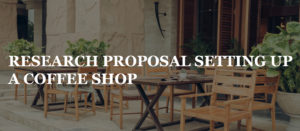Morocco is located in the northwestern side of North Africa. The piece of land is a gem in its own sense, as because it lies in the list of those three countries of the world which includes in it, coastlines of both the Atlantic and the Mediterranean Sea. Arab, Sub-Saharan African, European and Berberian culture is instigated in the State of Morocco. Therefore the state is said to be a multicultural piece of land where various cultures are present. This essay will shed light one of the most multicultural and prominent states of the world, considering and analyzing the detailed features related to the respected piece of land.
Being belonging to a multicultural society, this state is not limited to the practice of only one language, but great varieties of languages are spoken in the region. As for example a few of these languages are Arabic, Moroccan Arabic, Berber, and French. However, the official language of Morocco is Arabic, being understood and spoken by a large population of the state. With the Arabic language, the second most spoken and used language in the region is Berber, being in use by almost one-third of the total citizens in the state. It must be made clear in the minds of the readers that French is not left behind the other languages, and is part of the curriculum of the schools and colleges too. Not only in the schools and colleges but at the professional level, the use of the French language is also very common.
First of all the political structure and practices will be underlined in the essay, showing the readers that how the government works in the region. Morocco is also famous for its governing system under which there is a constitutional monarchy practiced. However, the elected parliament is also present in the political system of the kingdom of Morocco. Before proceeding to the next topic related to Morocco, the political system of the region and the way it is governed will be discussed in much detail, in order to get a clear picture of the whole aspect.
The political system of Morocco is a mixture of the monarchial rule on one hand, whereas on the other and the elected parliament house is also present. Under the characteristics of monarchial rule, Morocco has a king, who is responsible for the role of executive and legislative branches of the state. King is the one being responsible for issuing a decree and acting as the law force of the state. He is the one who can actually dissolve the whole of the parliament with the consent of the Prime Minister of Morocco and the Constitutional court. The executive power is solely controlled by the monarch of the region, however, the legislative power is shared by two chambers of parliament, assembly of councilors and representatives, and last but not least the government. The king of the kingdom of Morocco is actually the head of government.
The president is appointed by the king of Morocco, therefore making the king of the state actually the one ruling the nation. Political parties are also present in the system, having the characteristic of independence and firmness. The whole functioning of the state is organized by the government, king, political parties and the Prime Minister mainly, having another corresponding representative aside too. But has been observed that there will be soon a change in the political system of Morocco. Chances of the shift from monarchial rule to the parliamentary system completely are expected to be witnessed in Morocco in the future. Mohamed VI is the present king of Morocco, who came into power in late 20th century.
This must be because of the nature and efforts of the current king of Morocco, that democratic practices like elections and political parties are also witnessed in the political practice of the region. The father of the present king, who was the previous king of Morocco, was rigid and autocratic in nature, but Muhammad VI, is very different from him, making Morocco a much peaceful place to live in, for the citizens.
After highlighting the political factors associated to Morocco, this section will cover the economy or the economic factors of the kingdom of Morocco. It is observed that Morocco is positioned at the 9th position out of 15 countries of the Middle East/North African region. However, the economic score of this region is below the average rate fixed by the whole world. But the score is increasing as there was observed around points increase in score within the previous year. The economic freedom of Morocco is fixed at the score of 60.1 in the world, making it the 89th freest economy in accordance to the estimate given in 2015. Economic freedom can be related to the presence of investment freedom at one hand and monetary freedom on other hand. Then the presence of labor freedom and overall economic freedom are all present gaining within five past years in Morocco.
Considering the trading relations of Morocco with the international world in the globalization era, there is present openness to trade in Morocco. This helped the kingdom of Morocco to improve its financial position to a great extent, leading to much development in the region. When the discussions are being done regarding the tax rate of the region of Morocco, it is observed that the maximum income tax rate in Morocco is thirty-eight percent. The tax rate for the corporate sector is exactly thirty percent, therefore with adding other value-added and local taxes and making of around twenty-eight percent GDP (it must be reminded that GDP stands for the Gross Domestic Product, which indicates the health of the economy of any state by representing the total value of all the aspects of the state, like goods and services mainly).
As the political and economic factors of the Kingdom of Morocco are already mentioned in the portions above, this portion of the writing will shed light on the social aspects related of the region of Morocco. The language and the speaking practices in the state are already mentioned above, not the religion will be discussed in detail, for knowing that at what level Morocco stands in terms of its religion. It is quite commonly known that there are the present majority of Muslims in the region. Almost Ninety-Nine percent of the whole population is Muslim. Being a state with a Muslim majority, Morocco’s practices and culture is also very much close to the Muslim world. Offering five times prayer in masjids, fasting in the month of Ramadan, and offering special grand prayer on Friday are some of the common practices witnessed there. One of the famous Mosques which are also open for Non-Muslims for to visit as tourists is the Mosque of Hassan II, which is situated in Casablanca. However other mosques are for offering prayers only, not allowing any tourist activities.
Considering the aspect of tourism in the region, traveling in the region is very interesting. The Moroccans are said to be very hospital in nature, even in spite of being present in the desert-like areas. In the desert, the tradition of being a hospital is not observed, but the case in Morocco is entirely different. The Moroccan people are said to be a very hospital in nature, offering water and food to the people who are found traveling. The foreigners are welcomed very warmheartedly but because of the Muslim culture in Morocco, women tourists have to face few hardships during traveling.
As the dress code for the women is being all covered and not exposing excessive body parts, the western Non-Muslim women travelers face difficulties while roaming around because of this dress code. In order to roam freely with their own dress code, women have to go to the travellers’ zone, where such restrictions on travelers are controlled.
With the practice of a covered dress code, the women are also not allowed to roam around alone on the streets. The idea of watching women at public places at night, or after sunset is also something, considered very bad in the native people of Morocco. The traveling areas or traveling zone, fixed by the authorities are much free and easy for the women traveling to Morocco, especially the one who belongs to the Western world and are Non-Muslims.
Overall Morocco is a very good place, having a complex but interesting political, social, and economic setup overall. However Morocco faced few hardships in economic terms, but it might get progress in the future because of its open trade if the finances are given much more importance by the authorities.
References:
“The Travelers Guide to Morocco.” Culture, Religion and Customs of Morocco. Web. 29 Jan. 2015.
Morocco. (n.d.). Retrieved January 29, 2015, from <http://www.heritage.org/index/country/morocco>
“List of Heads of Government of Morocco.” Wikipedia. Wikimedia Foundation. Web. 29 Jan. 2015.
“European Forum.” Morocco Country Update. Web. 30 Jan. 2015, from <http://www.europeanforum.net/country/morocco>.



